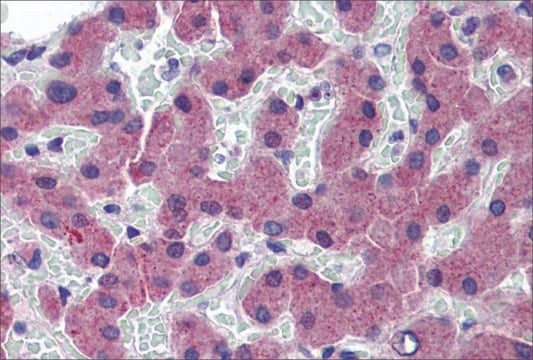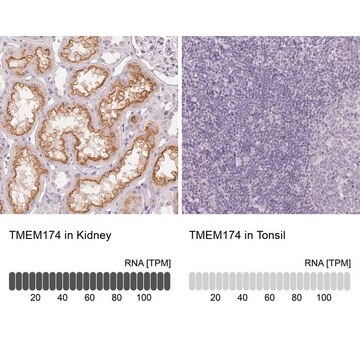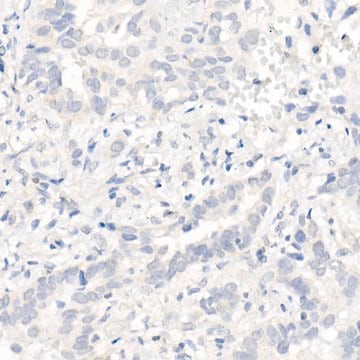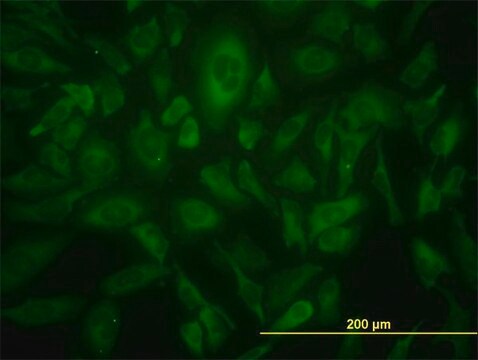MABS1981
Anti-TfR2 Antibody, clone 9F8-1C11
clone 9F8 1C11, from mouse
Synonym(s):
Transferrin receptor protein 2
About This Item
Recommended Products
biological source
mouse
Quality Level
antibody form
purified immunoglobulin
antibody product type
primary antibodies
clone
9F8 1C11, monoclonal
species reactivity
human
technique(s)
immunocytochemistry: suitable
immunoprecipitation (IP): suitable
western blot: suitable
isotype
IgG1κ
NCBI accession no.
UniProt accession no.
shipped in
ambient
target post-translational modification
unmodified
Gene Information
human ... TFR2(7036)
General description
Specificity
Immunogen
Application
Immunohistochemistry Analysis: A representative lot detected Tfr2 in Immunohistochemistry applications (Vogt, T.M., et. al. (2003). Blood. 101(5):2008-14).
Western Blotting Analysis: A representative lot detected Tfr2 in Western Blotting applications (Vogt, T.M., et. al. (2003). Blood. 101(5):2008-14; Byrne, S.L., et. al. (2013). PLoS One. 8(7):e70199; Zhao, N., et. al. (2013). Biochemistry. 52(19):3310-9).
Immunoprecipitation Analysis: A representative lot detected Tfr2 in Immunoprecipitation applications (Vogt, T.M., et. al. (2003). Blood. 101(5):2008-14; Johnson, M.B., et. al. (2004). Blood. 104(13):4287-93).
Epigenetics & Nuclear Function
Quality
Western Blotting Analysis: 1 µg/mL of this antibody detected Tfr2 in 10 µg of K562 cell lysaste.
Target description
Physical form
Storage and Stability
Other Notes
Disclaimer
Not finding the right product?
Try our Product Selector Tool.
Storage Class Code
12 - Non Combustible Liquids
WGK
WGK 1
Certificates of Analysis (COA)
Search for Certificates of Analysis (COA) by entering the products Lot/Batch Number. Lot and Batch Numbers can be found on a product’s label following the words ‘Lot’ or ‘Batch’.
Already Own This Product?
Find documentation for the products that you have recently purchased in the Document Library.
Our team of scientists has experience in all areas of research including Life Science, Material Science, Chemical Synthesis, Chromatography, Analytical and many others.
Contact Technical Service








